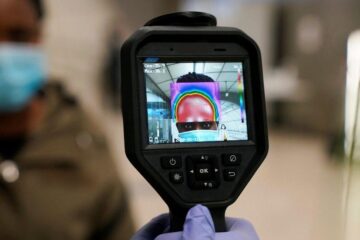As Breaches Mount, Certification Helps Promote Confidence and Trust

Nowadays, almost every digital interaction, whether taking place on a mobile device, computer, or cash register will involve the input of some kind of data. Business and personal data has become more valuable than ever so it is crucial that you know how to protect data properly.
Nowadays, certifications and courses such as data privacy course, DPO course, and PDPA certification are now being offered to help data protection officers and professionals to adhere to good practices and achieve regulation compliance. In this article, we will cover the importance of certifications and some of the most prevalent work-from-home risks.
The Importance of Data Protection
Businesses typically make use of professional and personal data. This can include employee records, contact information, and payment credentials. Organisations strive to protect data that is under their care and immediately resolve any issues like fraud or identity theft.
If your organisation has a reputation for protecting personal and sensitive data, you can easily earn the trust of potential clients and customers and can effortlessly convince them to work with you. If your organisation also strictly complies with data protection standards and regulations, you can increase your credibility.
How Certification Promotes Trust and Confidence
Some experts predict that the demand for information security analysts and data protection officers will grow by as much as 33% from the year 2020 to the year 2030. This is way faster than the average growth rate for other professions. More and more organisations will also invest in the services of data protection professionals to help them prevent and successfully manage cyber attacks.
Those who have earned data protection certifications can show potential employers the level of specialised knowledge they have and their commitment to professional growth. Some certification programs will also provide areas of study that can’t be learned through work experience.
In addition, some data protection certifications will allow participants to connect with other industry professionals. These contacts also have the potential to become professional contacts or even future colleagues. Data protection certifications can also improve one’s ability to perform their job and boost their confidence in their skills.
Top Work-From-Home (WFH) Cyber Risks
01: Phishing Scams
With more companies now implementing WFH measures for employees, global phishing scams have also become more common. Phishing refers to a method used by cyber criminals to obtain sensitive information fraudulently. This can include obtaining the login details.
02: Weak Passwords
In a lot of cases, hackers gained access to corporate networks through weak password and username combinations. Weak password username and combinations are often easy to guess and exploit.
03: Unencrypted File Sharing
File sharing enables organisations as well as their employees to edit and share electronic documents easily. Large and small organisations have used file sharing applications to facilitate convenient collaboration and boost productivity.
Unfortunately, data security nightmares can occur when sensitive and personal data or files are shared without encryption.
04: Unsecured WiFi at Home
As more employees are now working from home, they are utilising their WiFi network at home to access the company’s networks and systems. As such, there is a risk for data breach and cyber attack as hackers can exploit security gaps to gain access to the organisation’s network.
05: Working on Personal Devices
Employees may use their own personal devices to work from home and this should be considered a risk by the organisation. For instance, family members might use the same device and surf the Internet.
Family members might click on phishing emails resulting in malware or virus to be installed on the device. The employee may also unknowingly expose the network of the company, resulting in unauthorised access.















